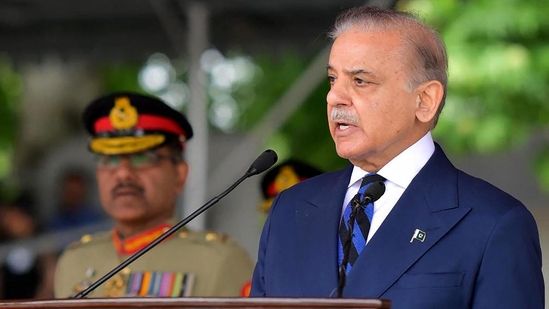Pakistan’s Deputy PM Sparks Controversy Over Fake “Operation Sindoor” Video
In a surprising turn of events, Pakistan’s Deputy Prime Minister Ishaq Dar recently shared a fake viral video claiming to show an India-Pakistan conflict scenario. The misleading clip, which circulated widely on social media, was falsely linked to a supposed military operation called “Operation Sindoor.” However, fact-checkers have since debunked the video, confirming it was doctored and unrelated to any real India-Pakistan tensions.
This incident has raised concerns about the spread of misinformation at the highest levels of government, especially amid the already sensitive relations between the two nuclear-armed neighbors.
What Was the Fake “Operation Sindoor” Video?
The viral video, shared by Pakistan’s Deputy PM Ishaq Dar, allegedly depicted Indian forces engaging in aggressive actions against Pakistan. The clip was presented as evidence of escalating tensions, with some social media users even suggesting it was part of a covert mission dubbed “Operation Sindoor.”
However, independent fact-checking platforms quickly analyzed the footage and found it to be manipulated. The original video was from an unrelated military exercise, and there was no truth to claims of an India-Pakistan conflict under the name Operation Sindoor.
Source: Firstpost
Why Did Pakistan’s Deputy PM Share Misinformation?
The incident has led to questions about how such fake news reached Pakistan’s Deputy PM and why it was shared without verification. Possible explanations include:
-
Social Media Echo Chambers – Misinformation spreads rapidly, and even high-ranking officials can fall victim to viral hoaxes.
-
Political Motivations – Given the history of India-Pakistan tensions, such content may be used to fuel nationalist sentiments.
-
Lack of Fact-Checking – Authorities may not have proper mechanisms to verify viral content before sharing.
Regardless of the reason, the incident highlights the dangers of unverified claims being amplified by influential figures.
Fact-Checkers Debunk “Operation Sindoor” Claims
Several fact-checking organizations, including AFP Fact Check and India Today’s Anti-Fake News War Room, examined the video and confirmed:
-
The footage was not recent and had been edited to misrepresent reality.
-
There was no military operation called “Operation Sindoor” involving India and Pakistan.
-
The original video was from a training exercise in a different country.
Despite these findings, the false narrative had already gained traction, demonstrating how quickly fake news can escalate tensions between India and Pakistan.
The Risks of Misinformation in India-Pakistan Relations
The India-Pakistan conflict is one of the most volatile geopolitical issues, with a history of wars and skirmishes. When fake news like this circulates, it can:
-
Increase hostility between the two nations.
-
Trigger panic among citizens.
-
Undermine diplomatic efforts aimed at peace.
Given that Pakistan’s Deputy PM Ishaq Dar shared this misinformation, it raises concerns about how such actions could impact bilateral relations.
How Should Governments Handle Viral Fake News?
This incident underscores the need for:
- Stricter Verification Processes – Officials must cross-check information before sharing.
- Media Literacy Campaigns – Educating the public on identifying fake news.
- Collaboration with Fact-Checkers – Governments should work with independent agencies to debunk false claims swiftly.
Without these measures, misinformation will continue to pose a threat to regional stability.
International Reactions and Diplomatic Efforts
The international community has closely monitored the developments between India and Pakistan. Following Operation Sindoor, both nations agreed to a ceasefire on May 10, 2025, with talks scheduled to address the underlying issues. However, mutual accusations of ceasefire violations have persisted, indicating the fragility of the truce
India has maintained that any future dialogue with Pakistan must be predicated on a cessation of cross-border terrorism. The Indian government’s stance underscores the importance of addressing the root causes of the conflict to achieve lasting peace
A Lesson in Responsible Leadership
The case of Pakistan’s Deputy PM Ishaq Dar sharing a fake “Operation Sindoor” video serves as a stark reminder of how easily misinformation can spread—even at the highest levels. In an era where India-Pakistan tensions remain fragile, leaders must exercise caution and verify facts before amplifying unverified claims.
As citizens, we must also remain vigilant and rely on trusted sources to avoid falling for fake news that could escalate conflicts.

